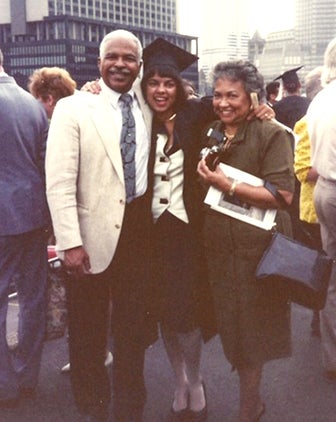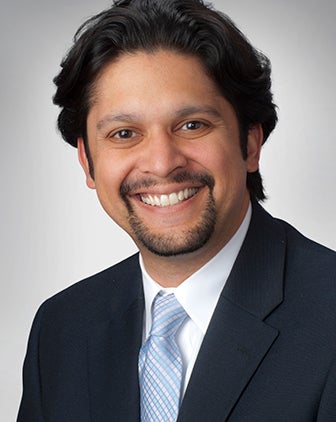
Subscribe to Pittwire Today
Get the most interesting and important stories from the University of Pittsburgh.Pitt Alumnae Share the Gift of Life
April is National Donate Life Month, an annual commemoration of organ donors and the recipients they have helped.
For Tracy Floyd (NURS ’91) and Carla Jackson (CGS ’91), the time of year has come to be a special one, but neither could have known it as they sat at Pitt commencement in 1991.
The women weren’t close in college. They had reconnected through mutual friends at Homecoming events in 2010 and the years that followed — exchanging phone numbers and becoming friends on Facebook — but living in separate states meant a more distant connection.
Then in October 2015, Jackson posted on Facebook that she was raising money for a National Kidney Foundation Walk at the Pittsburgh Zoo.
After about a year on the waitlist at UPMC’s Thomas E. Starzl Transplantation Institute, she needed a transplant. Floyd saw and immediately texted a reply.
“I’ll donate,” she said.
“Thank you!” Jackson said. “Money?”
“No — a kidney!”
Floyd hadn’t been a match for her own father when he’d needed a kidney transplant in 1978. At the time, donors and recipients had to have the same blood type, which doesn’t always happen within families.
“It’s actually one of the most common myths that you need to be the same blood type as your donor” these days, said Amit Tevar, director of the kidney and pancreas program at the Starzl Transplantation Institute. “In the past, it used to be that way,” but medical advancements have provided workarounds.
Floyd said she was blessed for her father to see her graduate college, walk down the aisle and see the birth of her kids, but she still lost her dad too early in 2000.
So when Jackson’s post popped up on Floyd’s feed 15 years later, she didn’t hesitate. “I didn’t think about it. It just felt right,” Floyd said.
“I really think that Carla thought I was just playing or joking around. She said, ‘Okay…if you’re serious…’ that was Carla’s favorite line.”
Things moved quickly after that. Floyd came to Pittsburgh for testing in January 2016 — and found out on her birthday, February 2, that she and Carla had matching blood types, to boot. The transplant was scheduled for August 25, 2016.
Tevar performed Floyd’s procedure.
The women were “a very dynamic, energetic and warm, fantastic pair,” he said. “Just like most of our patients.”
“When they’re waking up from anesthesia after they’ve donated the kidney, the first question out of their mouth is, ‘how did the recipient do?’ And that’s something that, no matter how many times you hear it, is really remarkable.”
Leading in living donors
UPMC has a heavy focus on living-donor liver transplants, but prestige matters less to Tevar.
“The donor and recipient experience is the most important thing,” he said.
“When you come in through UPMC, I think one of the things that stands out is that everyone in transplant loves transplant. From the person that greets you at the door to the person that makes your schedule to the physicians to the surgeons to the coordinators, everyone is willing to go the extra mile to make it happen, and I think that’s an important feeling.”
An estimated 95,000 people across the country are waiting for a kidney and around 14,000 are on the waiting list for a liver from a deceased donor according to the Organ Procurement and Transplantation Network.
“Living donors are the real heroes,” Tevar said. “You have to be either on the list for a very long time in the case of kidneys, or be very sick in the case of livers, before you get a cadaveric organ offer.” When living donors agree to donate organs or partial organs, it gets somebody who’d otherwise be waiting off the list with a scheduled operation, for an organ that works better, longer and faster than one from a nonliving donor. And, added Tevar, then the whole list goes up one. “In my book, that donor is saving both people."
“We would like to see other centers and the rest of the country emphasize living donation because it truly is a better transplant option,” he added.
A second chance
Carla Jackson still can’t believe her luck sometimes. “It still amazes me that she would do something like that,” she said of Floyd. “When you’re blessed with a second chance at life you’ve got to take advantage of that.”
Last year, Jackson spent 10 days in Italy with her family, traveling, seeing new sights and sampling food. She’s planning a trip to Hawaii this year. And later in April, she’ll get together again with Floyd, to celebrate her friend’s 50th birthday.
Floyd, a gastroenterology nurse with Penn Medicine in Delaware, says it was meant to be.
“Spiritually the way I feel about this is, I’m sure God had this in plan when Carla and I were born, that I was going to be her donor. I didn’t have any doubts. I feel like I’m her protector, her big sister even though she’s exactly six months older than me. Everything seemed like a little puzzle. We were too interrelated for it not to succeed.”
Facts about organ, tissue and cornea donation
- Anyone can be a potential donor regardless of age, race or medical history.
- More than 7,000 patients in Pennsylvania are awaiting life-saving organ transplants. Thousands of others could benefit from healing tissue transplants.
- Kidneys are the organ in greatest demand, followed by liver, heart and lungs.
- Because conditions such as diabetes and hypertension often are more prevalent in the multicultural community, these individuals make up more than 50 percent of those on the national organ transplant list.
- Living donation is an option for kidney and liver transplantation.
(Source: Donate Life America and OPTN)
Film screening: ‘Burden of Genius’
Amid much medical controversy, Thomas Starzl performed the world’s first successful liver transplant in 1967. Upon moving to UPMC in 1981, he helped transform Pittsburgh into “the transplant capital of the world.”
“Burden of Genius,” a film about Starzl’s pioneering work in organ transplantation and anti-rejection drugs, is screening April 12-18 at the Carnegie Science Center’s Rangos Giant Cinema, North Shore, Pittsburgh.
The film has won two Best Documentary prizes at film festivals.
The screening is open to the public. Advance tickets are available online.
The film’s director Tjardus Greidanus, and producer and Pitt Film Studies Senior Lecturer Carl Kurlander, will speak after the screening on April 12.
Other notable speakers throughout the week include Abhi Humar, clinical director of the Thomas E. Starzl Institute; George Mazariegos, chief of the Pediatric Transplant Program of UPMC Children’s Hospital; Velma Scantlebury, a former Thomas E. Starzl Institute fellow and author of the new book “Beyond Every Wall: Becoming America’s 1st Black Female Transplant Surgeon;” and Joy Starzl, Starzl’s wife.
The School of Social Work is hosting a viewing on April 18 also at Rangos, and is sponsoring up to 20 tickets at no cost to students and support staff. Email sswemail [at] pitt.edu by April 12 for more information.




